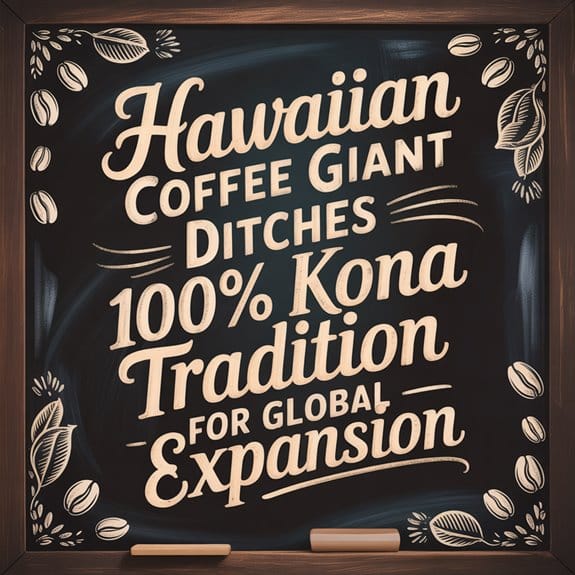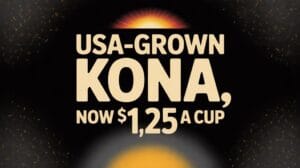While Kona Coffee Company built its name on 100% Kona coffee, it’s now expanding beyond its traditional roots. The company, which once focused solely on beans from Hawaii’s Kona District, now roasts coffee from other Hawaiian islands and international regions. This shift marks a major change for a brand long tied to the volcanic slopes of the Kona Coffee Belt—a narrow farming zone famous for its ideal climate and rich soil.
Kona coffee’s reputation rests on strict rules: only beans from North and South Kona can carry the name, and blends must list non-Kona ingredients. For decades, the company sourced beans directly from small local farms, roasting them in small batches to highlight Kona’s smooth, vibrant flavors. Recently, farms like Hala Tree Coffee Farm have led regenerative agriculture efforts, promoting soil health and partnering with neighboring growers to achieve organic certification. Its identity revolved around authenticity, exclusivity, and Hawaii’s coffee heritage.
Kona coffee’s identity hinges on geographic exclusivity, local farm partnerships, and small-batch roasting that champions authenticity and Hawaii’s rich coffee legacy.
Now, customers will find offerings from Kauai, Maui, and even global origins alongside traditional Kona options. The move reflects broader trends. Hawaiian coffee grows on five islands, but Kona beans make up a tiny fraction of global production. Prices stay high due to limited supply and prime growing conditions. The region has seen recent major investments, such as a $7.4 million ranch purchase, signaling shifting priorities toward coffee production. By diversifying, the company aims to reach new markets and reduce risks tied to climate or crop issues in Kona. It still uses small-batch methods for all products, stressing quality control. Not everyone supports the shift. Critics worry adding non-Kona beans could weaken the brand’s luxury image. Kona coffee’s value stems from its unique origin, and blending or offering cheaper options might confuse buyers.
Some fans question whether the company can maintain its heritage-driven ethos while expanding globally. Still, the firm insists its core Kona line remains unchanged, calling the expansion a way to share “Hawaii’s coffee culture” more widely. Global coffee culture influences trends in diverse regions, reshaping consumer expectations.
The Kona Coffee Living History Farm, which preserves traditional growing techniques, shows how deep local roots run. Yet even in a region proud of its history, adaptation is inevitable. As demand grows for specialty coffees, Kona Coffee Company’s plunge highlights the balance between tradition and evolution in an ever-shifting market.




